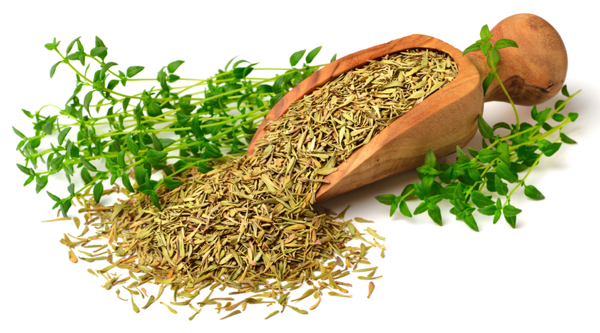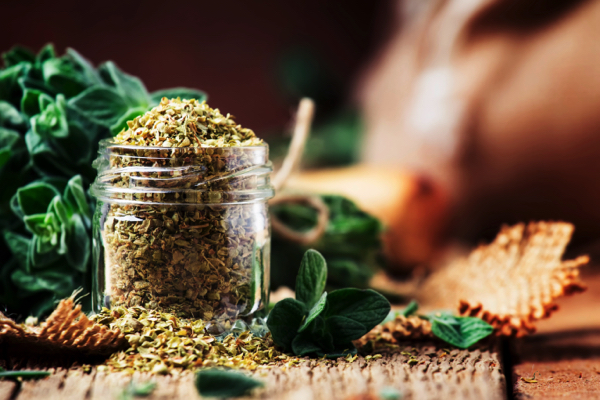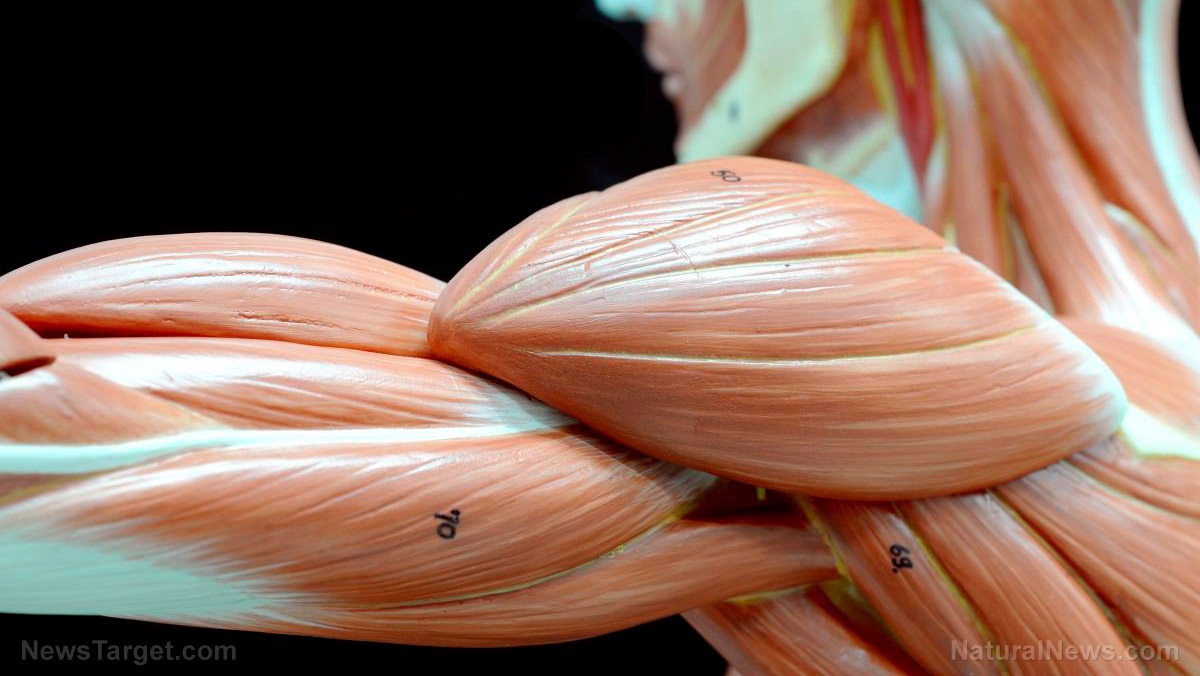 Parler
Parler Gab
Gab
Calms and supports the nervous system
The compound carvacrol in thyme has a naturally calming effect on the nervous system. By acting on neurotransmitters (the brain's chemical messengers), carvacrol helps to promote a sense of relaxation, which may be beneficial for people with mild anxiety or stress.Eases menstrual discomfort naturally
Thyme tea has antispasmodic properties, which can be especially helpful for menstrual cramps. Some active compounds in thyme, such as carvacrol, are known to naturally relieve discomfort and may also help stabilize mood swings associated with menstruation.Fights bacteria, fungi and microbes
The compound thymol, abundant in thyme, is well known for its antimicrobial properties – making it effective in combating bacterial, fungal and viral infections. Studies published in Microorganisms show thyme oil has antibacterial effects against pathogens like Escherichia coli, Salmonella and Staphylococcus aureus, which cause infections in humans. This makes thyme a potential natural remedy for keeping harmful microbes in check – especially when used as an essential oil.Guards against foodborne illnesses
Thyme oil's antibacterial activity makes it useful in preventing food spoilage and foodborne infections. Research published in the Brazilian Journal of Biology has shown that even small amounts of thyme oil can inhibit the growth of bacteria, such as Klebsiella pneumoniae, Pseudomonas aeruginosa and Staphylococcus saprophyticus, which are common in food. Thyme's preservative qualities make it an excellent option for keeping food fresh and reducing the risk of illness.Helps preserve food and prevent food poisoning
The antibacterial properties of thyme make it an effective natural preservative. Thyme's essential oil and its major constituents carvacrol, estragol, linalool, p-cymene and thymol can extend the shelf life of food and may even reduce the risk of food poisoning by killing bacteria and other pathogens that cause foodborne illnesses, such as Shigella.Improves circulation
Rich in iron and other minerals, thyme is beneficial for circulation because iron is vital for red blood cell production. An increase in red blood cells enhances oxygen supply to organs and tissues, which supports overall energy level, organ function and vitality.May help fight cancer
The essential oil carvacrol has shown anticancer potential, particularly against colon cancer. Research published in Anticancer Drugs indicates that carvacrol inhibits cancer cell growth and migration.Uplifts mood and eases stress naturally
Vitamin B6 or pyridoxine in thyme plays a role in regulating neurotransmitters in the brain that influence mood. Regular intake of thyme may support a more stable mood by reducing stress hormone levels and promoting relaxation.Offers antioxidant protection
Thyme boasts a high content of phenolic antioxidants, such as lutein, thymonin and zeaxanthin, which neutralize free radicals in the body. Free radicals are unstable molecules that cause cell damage – leading to inflammation and chronic diseases. By eliminating free radicals, thyme's antioxidants support brain, heart and skin health, while also slowing cellular aging.Provides essential vitamins and minerals
Beyond antioxidants, thyme is packed with essential vitamins and minerals, including substantial amounts of vitamins A, C, E and K, as well as B complex vitamins like niacin (B3), pantothenic acid (B5), pyridoxine (B6) and folate (B9). Additionally, thyme is packed with minerals like calcium, iron, magnesium, manganese, potassium and selenium. Together, these nutrients help keep the immune system ready to fight off viral infections and support optimum health.Strengthens the immune system
Thyme is rich in vitamin C, a powerful antioxidant essential for immune health. This vitamin plays a critical role in stimulating the production of white blood cells, which are our body's first line of defense against infections. It also assists in the formation of collagen, a protein vital for forming, maintaining and repairing blood vessels, cells, muscles, skin and tissues.Supports bone health and promotes strong bones
Thyme is a natural source of calcium, iron, manganese and vitamin K – all nutrients essential for bone health. Vitamin K plays a crucial role in bone density by assisting calcium absorption, which reduces the risk of osteoporosis.Supports brain health and enhances cognitive function
Research published in Molecules suggests that thyme may positively influence brain health by supporting the production of dopamine and serotonin – hormones crucial for mood regulation. Thyme's antioxidants and nutrients may help delay the onset of neurodegenerative disorders, including Alzheimer's and Parkinson's by reducing oxidative stress in brain cells.Supports eye health and improves vision
With high levels of vitamin A, thyme supports eye health by protecting against age-related macular degeneration and cataracts. Vitamin A is an antioxidant that helps neutralize free radicals in the eyes.Supports heart health, lowers blood pressure and regulates cholesterol
Thyme's manganese and potassium content offers cardiovascular benefits by helping lower blood pressure. Potassium is a natural vasodilator as it relaxes blood vessels, reducing strain on the heart and lowering the risk of atherosclerosis, heart attacks and stroke. Studies on thyme extract published in Frontiers in Nutrition suggest it can help lower heart rate and reduce levels of LDL ("bad" cholesterol) while raising HDL ("good" cholesterol).Supports oral health
Thyme is commonly used in dental products due to its ability to reduce oral bacteria and prevent tooth decay. Compounds in thyme help prevent plaque buildup and reduce the risk of gum disease. This ancient herb has been used traditionally as a mouthwash to combat bad breath and reduce oral thrush – a yeast infection caused by Candida albicans. When mixed with water, thyme oil provides an effective rinse to alleviate thrush symptoms and maintain oral hygiene.Supports reasonable weight management goals
The compound thymol in thyme is believed to increase metabolism by helping the body break down fats more effectively, which supports weight loss when combined with a healthy diet and active lifestyle. Additionally, thyme tea may help control appetite – making it easier to avoid overeating or snacking between means.Supports respiratory health
As a natural expectorant, thyme helps clear respiratory passages by thinning mucus, which makes it easier to expel. It is traditionally used to alleviate persistent cough, sinus congestion and sore throat and can be particularly helpful during the cold and flu season.Supports skin health and protects against atopic dermatitis
Thyme's anti-inflammatory and antibacterial properties are beneficial for skin conditions, such as atopic dermatitis – a long-lasting skin condition that causes inflamed, itchy and red patches on the skin. Thymol has been shown to reduce skin inflammation by limiting inflammatory compounds in the body, which may reduce the risk of secondary bacterial infections, such as those caused by Staphylococcus aureus. Read more stories like this at Herbs.news. Watch this video to learn more about thyme herbal medicine benefits, uses and side effects. This video is from the Holistic Herbalist channel on Brighteon.com.More related stories:
Thyme essential oil has many uses in alternative medicine, as an antimicrobial, antispasmodic and antioxidant. Protect your home with a non-toxic natural solution that's effective against pesky insects. Boost your survival kit with essential oils.Sources include:
MedicineNet.com PMC.NCBI.NLM.NIH.gov 1 ResearchGate.net ScienceDirect.com 1 PubMed.NCBI.NLM.NIH.gov 1 PMC.NCBI.NLM.NIH.gov 2 PMC.NCBI.NLM.NIH.gov 3 PubMed.NCBI.NLM.NIH.gov 2 ScienceDirect.com 2 JLR.org Brighteon.comStock up on these long-term storable survival foods that you can grab at a grocery store
By HRS Editors // Share
Oregano: A small green leaf with big health benefits
By Olivia Cook // Share
Do humans have a latent ability to regenerate body parts?
By Cassie B. // Share
Muscles and immunity: How building muscle boosts your immune system
By Olivia Cook // Share
Governments continue to obscure COVID-19 vaccine data amid rising concerns over excess deaths
By patricklewis // Share
Tech giant Microsoft backs EXTINCTION with its support of carbon capture programs
By ramontomeydw // Share
Germany to resume arms exports to Israel despite repeated ceasefire violations
By isabelle // Share










